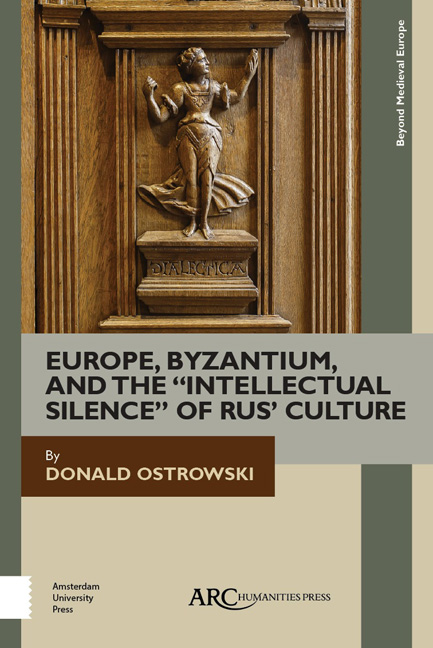4 - The Eastern Church’s Philosophical Outlook
Published online by Cambridge University Press: 06 January 2021
Summary
I will provide here only one example of the difficulty Western-trained scholars have in understanding the Eastern Church mentalité. The English historian Steven Runciman (1903−2000) describes the exchange of correspondence between the Lutherans and the Patriarch of Constantinople Jeremias II Tranos (r. 1572−1579, 1580−1584, 1587−1595) in the sixteenth century this way:
in the middle of the century the Lutherans, under the philhellene Melanchton, began to make overtures to the Greek Church, as an ally against Rome. This was a little embarrassing to the Greeks. When the Confession of Augsburg, translated into Greek for his benefit, was sent to the patriarch, he returned no answer. A second copy was then sent, and eventually the Patriarch Jeremias II was obliged to reply, in a polite but firm statement in which he pointed out where, in Orthodox opinion, the Augsburg Confession was heretical, in particular over its attitude to monastic vows and to icons, to the Sacraments and to justification by faith and to free will, and to the procession of the Holy Ghost (over which the Lutherans followed the Latin error). The Lutherans attempted to argue the points; whereupon Jeremias repeated his objections and wrote back at last asking them not to send more arguments, but only to write letters in the cause of friendship.
Runciman attributed the Patriarch's reluctance to engage in disputation to political embarrassment, but it is difficult to see what was embarrassing to the Eastern Church in being involved in political discussions with the Protestants against their common enemy, the Latin Church. After all, Jeremias ends his third reply with these words: “write no longer concerning dogmas; but if you do [write], write only for friendship's sake.” It would seem clear that Jeremias is not embarrassed by potential friendly relations with the Lutherans. Nor does he seem ignorant and unable to engage in disputation. One need only look at his replies to see his (or his amanuensis’) command of the literature. Instead, if one understands the Patriarch as acting within the Eastern Church Neoplatonic tradition, then one can more easily understand his reluctance to engage in idle disputation.
- Type
- Chapter
- Information
- Publisher: Amsterdam University PressPrint publication year: 2018



